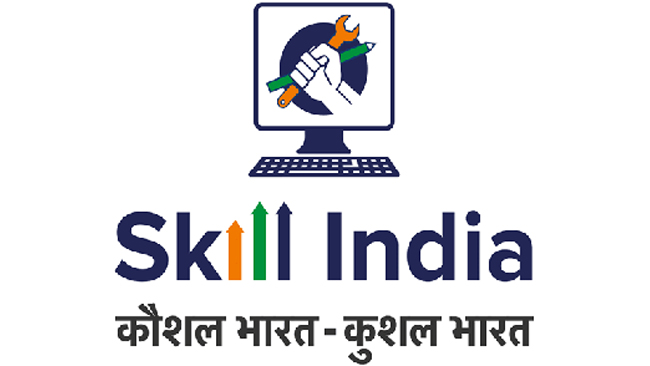
1.
Udyam, e-Shram, NCS and ASEEM portals will be interlinked. Their
scope will be widened. They will now perform as portals with live, organic
databases, providing G2C, B2C and B2B services. These services will relate to
credit facilitation, skilling, and recruitment with an aim to further formalise
the economy and enhance entrepreneurial opportunities for all.
MSDE will work with MSME and MoLE for integration of various
digital platforms to provide unified opportunities for employment and
entrepreneurship.
2.
Skilling programmes and partnership with the industry will be
reoriented to promote continuous skilling avenues, sustainability, and
employability. The National Skill Qualification Framework (NSQF) will be
aligned with dynamic industry needs.
MSDE is engaging with Industry and re-align existing NSQF as per
dynamic industry needs for which NCVET is being asked to roll out necessary
framework.
3.
Digital Ecosystem for Skilling and Livelihood – the DESH-Stack
e-portal – will be launched. This aims to empower citizens to skill, reskill or
upskill through on-line training. It will also provide API-based trusted skill
credentials, payment and discovery layers to find relevant jobs and
entrepreneurial opportunities.
DESH is extension of Aadhar-DBT-Jan-Dhan-BHIM technology
architecture. DESH technology architecture is founded on
Trust-Payment-Discovery enabling technology protocols and specifications. Trust Technology protocols on one hand
help citizens find trustworthy skilling courses and Training Institutes and on
the other hand help citizens store their Skill Certificates and Experience
Certificates in Digi Locker which can be verified by employers to access
trusted and verified profiles of skilled professionals. Payment Technology protocols/specifications help needy citizens to
access government funding for training in their chosen
skilling/reskilling/upskilling courses. Discovery
Technology protocols/specifications allow transparent discovery of skilling
courses/skilling institutes, Loan/scholarship/CSR opportunities and job
opportunities.
Like Aadhar and UPI, DESH is also a set of open
protocols/specifications, open data sources, and open APIs which will help
start-ups to build innovative solutions to help everycitizen maximize their
potential by availing skilling/reskilling/upskilling and
employment/entrepreneurship opportunities.
4.
Startups will be promoted to facilitate ‘Drone Shakti’ through
varied applications and for Drone-As-A-Service (DrAAS). In select ITIs, in all
states, the required courses for skilling, will be started.
The DGT has already designed a six month duration training
programme in ‘Remotely Piloted Aircraft
(RPA)/ Drone Pilot’ Trade in it is.
Short term courses in Drone Assembly/Repair/Coding etc. have also been
designed by Sector Skill Councils.
The above programme would be rolled out in select ITIs across all
States. Besides, NSDC & SSCs would also help implement this training
programme through various industry associations. Multi-Skilling needs in this
from Ministries like Agriculture, Chemicals & Fertilizers etc. will also be
factored in.
5.
National Council of Vocational
Education and Training (NCVET) has approved more than 5,100 industry aligned
qualifications till January 2022, on the request of various Sector Skill
Councils and other awarding bodies. It has identified future skills required by
the industry in close collaboration with SSCs, DGT, Central Ministries, State
Governments, industry experts.
6.
NCVET is closely working on skills
required for Industry 4.0 and beyond. Efforts have been made for NSQF-level
alignment of industry-recognized courses from top companies like Oracle,
Microsoft, TATA, CISCO and Original Equipment Manufacturer (OEM) courses to
skill/upskill/reskill the youth.
7.
DGT has got qualification tag on
drones approved under NSQF for implementation in ITIs:
o
Craftsmen Training Scheme (CTS) -
Remotely Piloted Aircraft (RPA)/Drone Pilot (Refresher Course)
o
Drone Technician
o
Remotely Piloted Aircraft
(RPA)/Drone Pilot
o
Remotely Piloted Aircraft
(RPA)/Drone Pilot (CTS)
8.
Under NCVET, a Unified Credit
Framework will be implemented from the next academic session. This Framework
will seamlessly integrate vocational education and training in school and
higher education and enable multiple entry-exit along with fulfillment of the
quality manpower requirements in industry.